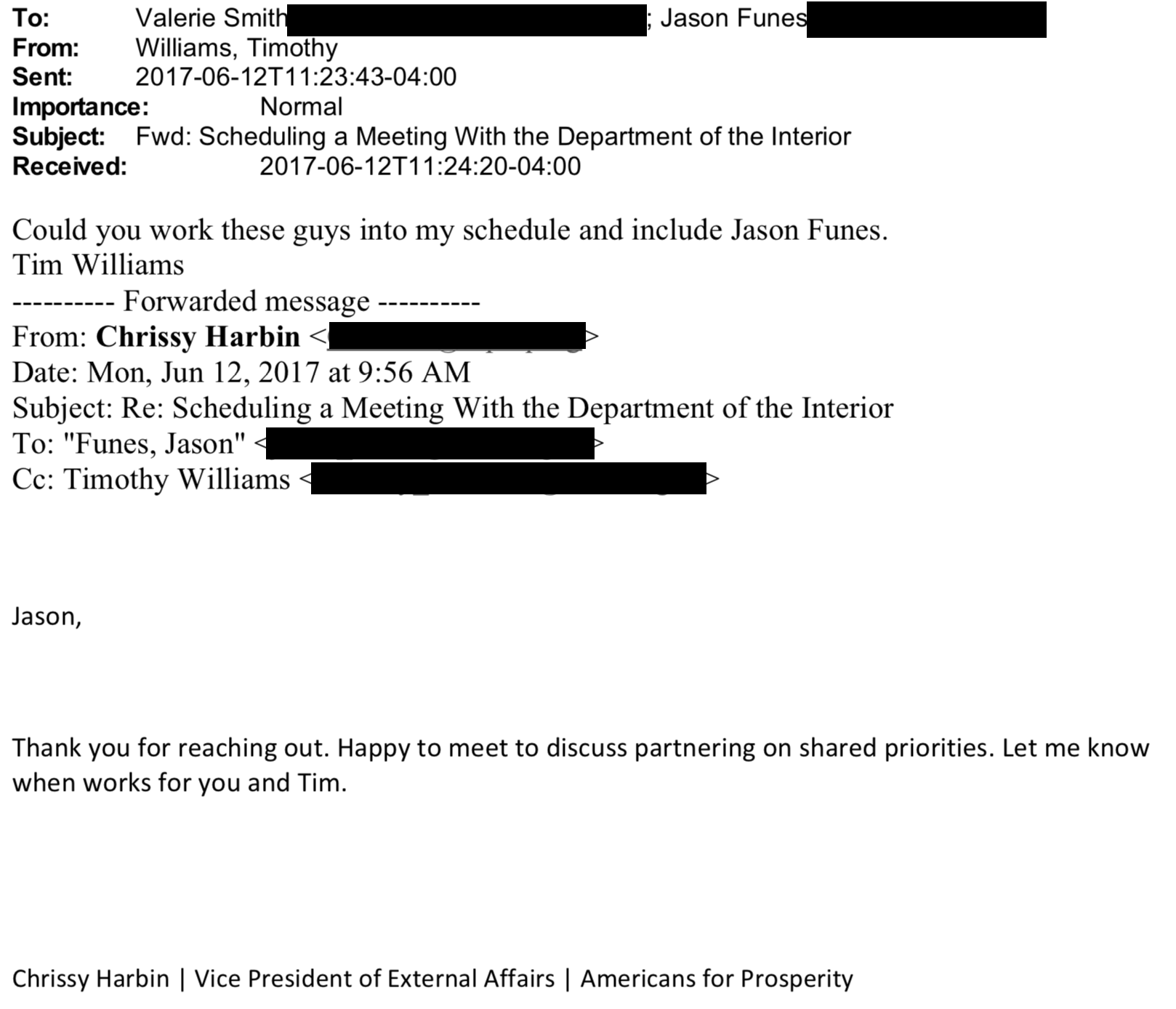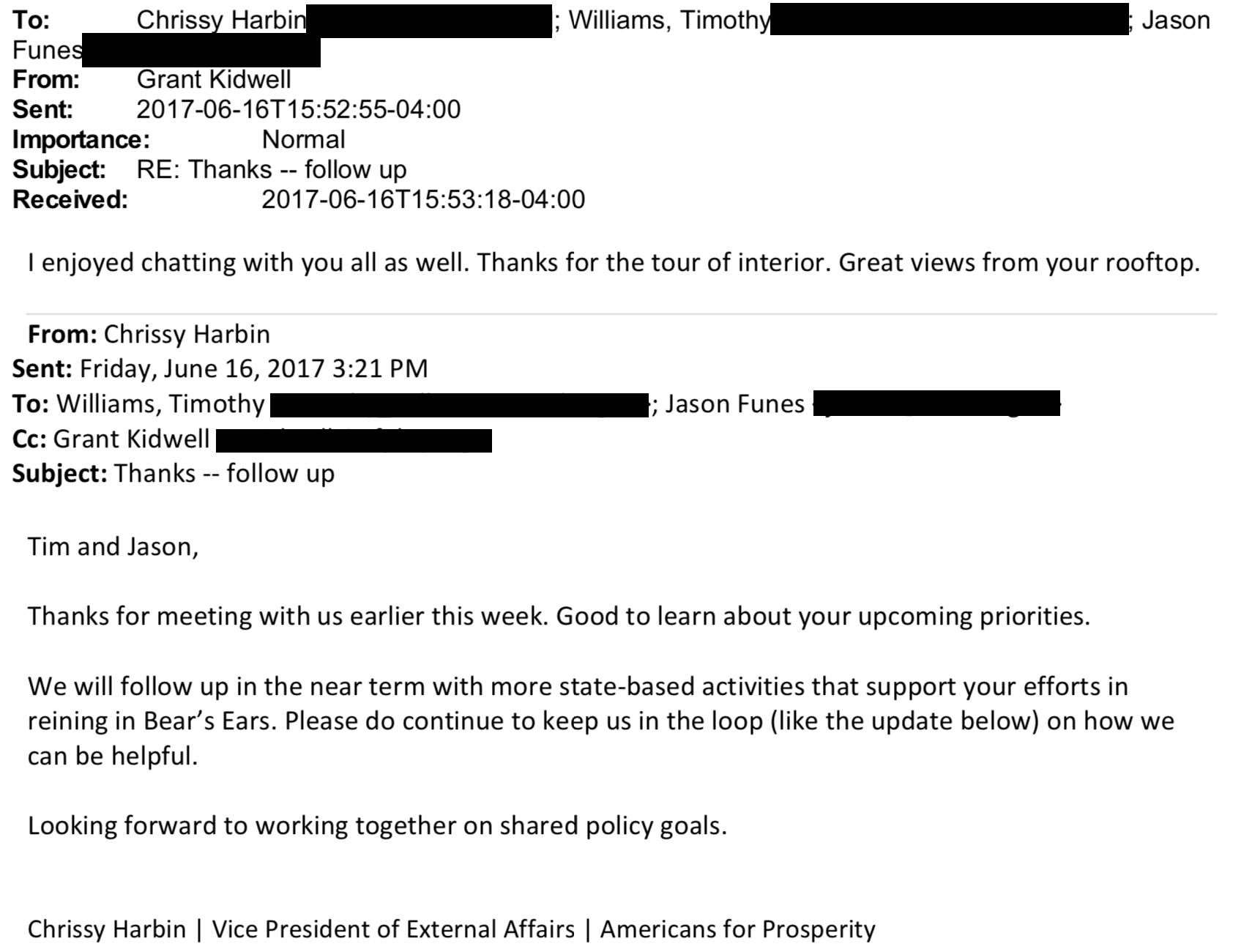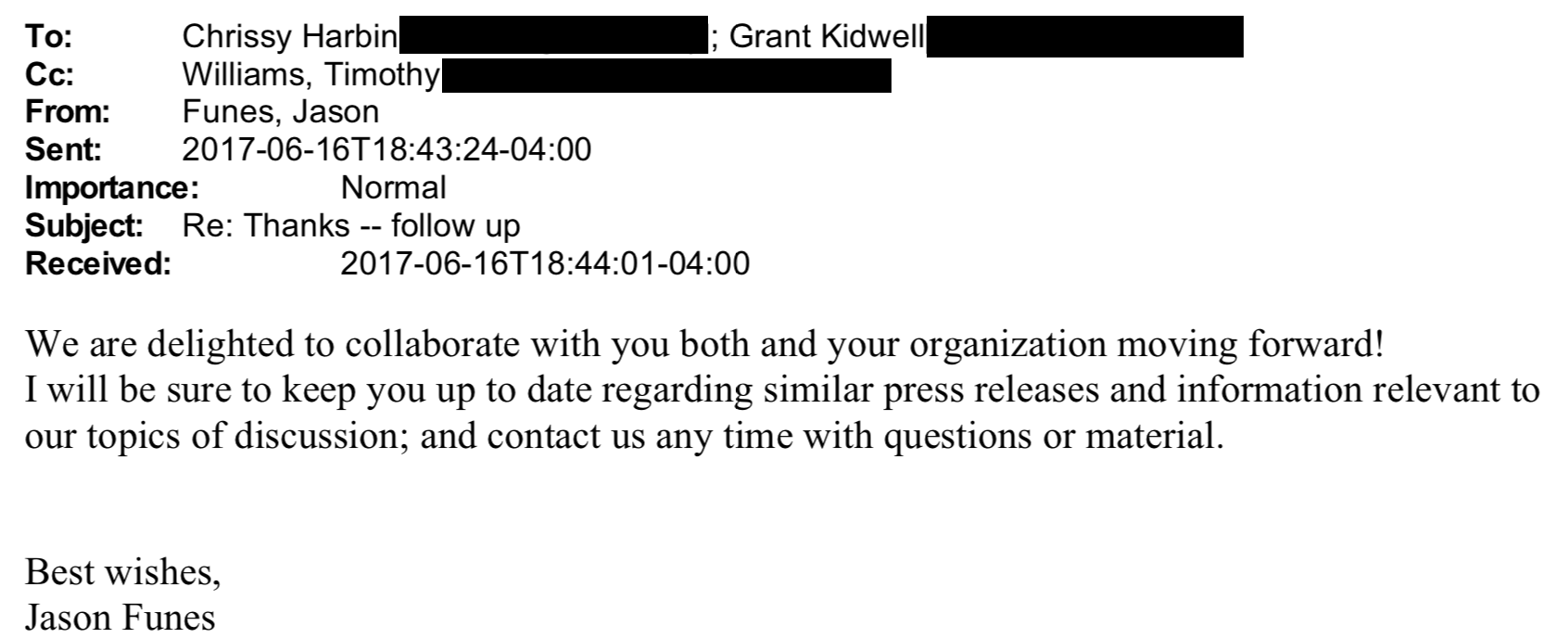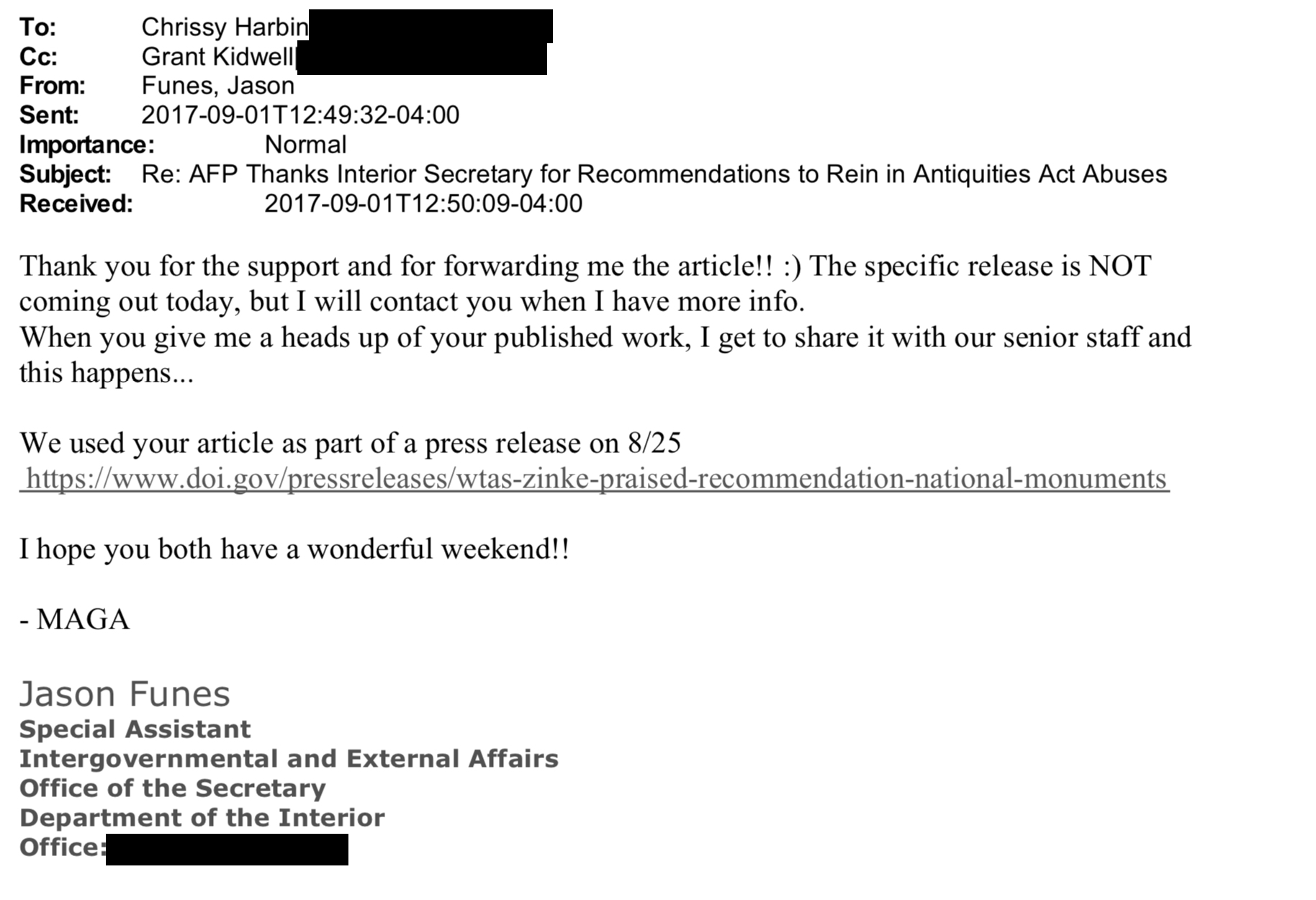For many months now, the United States Department of the Interior (DOI), which oversees the country’s public lands and many of its mineral resources, has been embroiled in a series of escalating scandals. Former Secretary of the Interior Ryan Zinke is under criminal investigation for a variety of matters, including his possible use of personal email accounts for official business. The current secretary of the interior, David Bernhardt, is the subject of a probe by his agency’s Office of Inspector General, which is investigating whether he used his position to advance policies favored by his former clients, among other alleged ethical violations. And the DOI’s top lawyer, Daniel Jorjani, is facing scrutiny after Senator Ron Wyden of Oregon asked the Department of Justice last week to investigate if Jorjani perjured himself at a Senate hearing earlier this year.
Several other DOI officials, meanwhile, are caught up in investigations into allegations that they met or communicated with former employers in violation of federal ethics rules. Timothy Williams, a long-time conservative operative from Nevada who helps lead the agency’s external affairs office, is one of them. Now, new documents obtained in a Freedom of Information Act lawsuit shed additional light on Williams’ alleged misdeeds.
Last November, Pacific Standard and the Guardian uncovered public records that showed that Williams had met in June of 2017 with his former employer, Americans for Prosperity, a Koch-brother-backed political advocacy group, to discuss the “shared priorities” of the DOI and the conservative organization. Under the White House’s own ethics pledge, political appointees in the executive branch are generally barred from participating in closed meetings and communications with former employers about various official matters for a period of two years from the date of their appointment. Federal ethics obligations also require government officials to act impartially and prohibit them from giving preferential treatment to private organizations and individuals. Breaking such rules can lead to a range of consequences, including injunctions, monetary fines, official reprimand, and even suspension or dismissal.
The initial revelation that Williams met with his former employer while in office ultimately led a government watchdog group, the Campaign Legal Center, to file a formal ethics complaint against him in February this year, alleging that he violated federal ethics rules. In April of this year, the DOI’s Office of Inspector General, which investigates wrongdoing within the agency, opened an investigation into allegations that Williams and five of his colleagues violated federal ethics rules by using their official positions to meet or communicate with their former employers or clients about specific policy matters.
As the investigation proceeds, Pacific Standard has obtained documents under the Freedom of Information Act that reveal new information about Williams’ meeting with his former employer. The records show that Williams and his Department of the Interior colleagues did not just organize a meeting with Americans for Prosperity, or AFP. They also gave AFP a tour of the Department of the Interior and apparently discussed with the group the DOI’s plans to “rein in” Bears Ears National Monument, a protected parcel of public land in Utah that the Trump administration ultimately dismantled in December of 2017. The documents also reveal that the initial meeting between Williams and AFP was followed by sustained communications, and even collaboration, between the conservative group and the DOI’s Office of Intergovernmental and External Affairs, which Williams helps lead.
The Department of the Interior and Americans for Prosperity did not respond to multiple requests for comment.
The new documents provide additional weight to the allegations that Williams violated federal ethics rules. They come as DOI’s inspector general continues its multiple investigations into ethical malfeasance at the agency.

Tim Williams is a seasoned conservative foot soldier who currently serves as the deputy director of the DOI’s Office of Intergovernmental and External Affairs, which works to “strengthen relationships” between the agency and state and local governments as well as non-profit groups and private industry. Before joining Donald Trump’s presidential campaign in January of 2016, Williams worked for roughly nine months as a Nevada-based field director for Americans for Prosperity, according to his official resume.
AFP is a behemoth in the conservative movement. Having received many millions of dollars over the years from conservative organizations tied to the billionaire brothers Charles and David Koch, it engages in a wide range of political work, from state level lobbying, to campaigns against tax increases and public transit projects, to anti-environmental advocacy. The group was a staunch opponent of Bears Ears National Monument, a large expanse of public land in southern Utah that was protected by presidential proclamation in the last months of the Obama administration.
In June of 2017, less than a month after the DOI announced Williams’ appointment, a special assistant in his office named Jason Funes sent out a meeting invitation that garnered a quick reply from Chrissy Harbin, a vice president at AFP at the time.
“Happy to meet to discuss partnering on shared priorities,” Harbin wrote in a June 12th email responding to the invitation. “Let me know when works for you and Tim.”
After receiving Harbin’s response, Williams emailed an assistant and asked her to “work [AFP] into my schedule….”

Two days later, on June 14th, the meeting took place. Williams and Funes met with Harbin, and Harbin’s AFP colleague, Grant Kidwell, at DOI headquarters, and gave the AFP staffers a tour. Emails obtained via a recent FOIA request appear to show that the meeting participants explicitly discussed the DOI’s effort to roll back protections for Bears Ears National Monument in Utah.
“Tim and Jason, Thanks for meeting with us earlier this week. Good to learn of your upcoming priorities,” Harbin wrote in a follow-up email after the meeting. “We will follow up in the near term with more state-based activities that support your efforts in reining in Bear’s Ears. Please do continue to keep us in the loop … on how we can be helpful.”
Harbin’s colleague, Kidwell, also chimed in.
“I enjoyed chatting with you all as well,” he wrote. “Thanks for the tour of interior. Great views from your rooftop.”

In an enthusiastic reply, Funes responded to the two AFP officials on behalf of his office.
“We are delighted to collaborate with you both and your organization moving forward!,” he wrote.

And, in the days and months to come, that is precisely what happened. Throughout 2017 and 2018, the DOI’s external affairs office would invite AFP officials to multiple events at the DOI, including a roundtable discussion on cutting “red tape” and the Department’s July 4th party. Funes, who is not barred from communicating with AFP by the ethics pledge, was a key conduit between the DOI and AFP. He personally spoke at an AFP state lobby day in Virginia and he worked to help arrange an appearance at an AFP event by Vincent DeVito, who was then serving as an energy counselor at the Department of the Interior.
And Funes, representing the external affairs office, also collaborated with AFP in the effort to build support for the DOI’s rollback of Bears Ears National Monument.
AFP was a vociferous opponent of the 1.3-million-acre monument and wanted to see it dismantled. In May of 2017 AFP’s Kidwell published an op-ed in the Hill arguing that the Antiquities Act of 1906, which empowers presidents to create national monuments like Bears Ears, had been “hijacked for political reasons.” On June 8th, 2017, AFP was a signatory on a letter published in Utah’s Deseret News that called on Trump to “reduce and rescind egregious national monuments where local support exists to do so.” As reported in The Nation and other outlets, AFP was part of a constellation of Koch brother-backed conservative groups that helped lead the fight to roll back protections for Bears Ears National Monument.
When former Secretary on the Interior Ryan Zinke officially recommended in August of 2017 that Trump slash Bears Ears National Monument and other protected parcels, AFP rejoiced. It published a statement on its website applauding Zinke’s recommendation and Harbin forwarded the statement to Funes in the DOI’s external affairs office. Funes responded to Harbin in an email, writing: “Thank you for your support and for forwarding me the article !! :)”
“When you give me a heads up of your published work, I get to share it with our senior staff and this happens. … We used your article as part of a press release on 8/25,” he added, before ending his email, as he often did, with the phrase “MAGA,” shorthand for Trump’s campaign slogan “Make America Great Again.”

Indeed, in late August the DOI included a portion of AFP’s statement in an official government press release about the Bears Ears rollback.
The new documents detailing Timothy Williams’ meeting with AFP come after Pacific Standard published a separate set of documents last month that revealed how a different top DOI official, Doug Domenech, also engaged in extensive communications with his own Koch brother-backed former employer, the conservative Texas Public Policy Foundation. Among other things, the documents showed that Domenech had personally arranged a pair of meetings between DOI officials and his former employer to discuss two lawsuits the conservative group was pursuing against the DOI. Domenech’s behavior is a subject of the same inspector general investigation that is probing the alleged ethics infractions of Williams.
Taken together, critics say these documents illustrate a pattern of ethical wrongdoing at the Department of the Interior, especially during the early months of the Trump administration.
“Williams’ closed meeting with AFP’s vice president, his former employer, illustrates the pattern of Interior officials routinely disregarding ethics rules to give privileged access to their former employers and clients,” says Delaney Marsco, ethics counsel at the Campaign Legal Center, a watchdog group that filed the ethics complaint against Williams and his colleagues earlier this year. “As more information is revealed about the level of influence that these former employers and clients seem to have over senior members at Interior, it’s clear why the inspector general found it necessary to open an investigation.”





